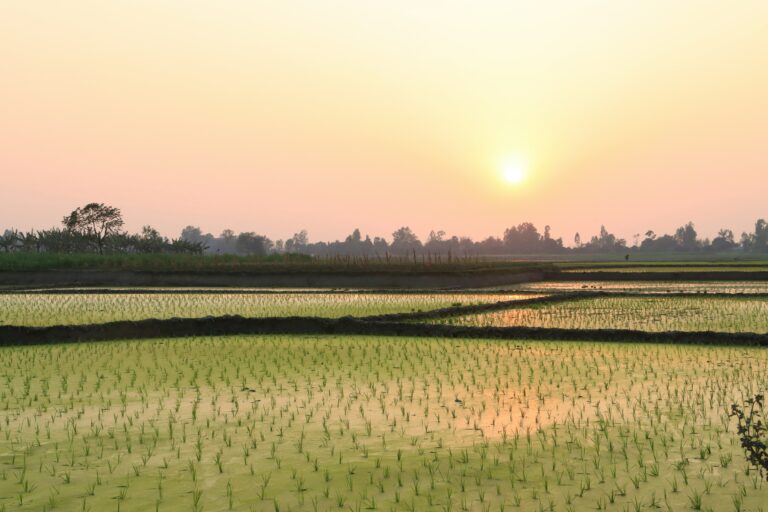Tackling the impacts of climate change on food security in Bangladesh

Downloads
Across the world climate change is threatening food security, and Bangladesh is no exception. The frequency and intensity of extreme weather events, flooding and extreme heat in the country have a direct negative impact on food production and availability, pushing up prices.
In the main, Bangladesh has done well to improve food production and food security in recent years: most measures of food security are moving in the right direction. However, climate change is likely to make future improvements more challenging.
This policy brief examines the climate change and food security challenges Bangladesh faces, the trajectory of policy in this area, and how the agriculture sector can contribute to climate change mitigation.
Key messages
- Bangladesh has a long history of addressing food insecurity through policies that focus on food availability and access.
- Early programmes to enhance access included a focus on safety nets such as ‘Food for Work’, and on vulnerable groups. Programmes to increase food availability have generally focused on food production, within the National Agricultural Policy.
- More recent policies have started to explicitly recognise the links between climate change and food security. These include the National Adaptation Programme of Action.
- There is evidence that climate change is already negatively affecting food security in Bangladesh, and this is projected to worsen substantially under high-warming scenarios. Therefore, it is increasingly important that policies targeting food security take explicit account of the implications of a warming world.
- Climate-smart agriculture approaches can play a vital role in building resilient food supplies and help tackle the issue of food availability. In Bangladesh, relevant approaches include increasing access to drought-resistant and flood-tolerant crop varieties, adopting agroforestry methods, and implementing sustainable land management techniques.
- In parallel, Bangladesh needs to focus on both food availability and access, particularly for the most vulnerable populations. Examples include building on existing early warning systems to provide advance notice of crop failures; and targeted safety nets to mitigate risks of food insecurity following extreme events.
- Though Bangladesh’s greenhouse gas emissions are low by international standards, its agriculture sector can still play an important role in mitigation, focusing on reducing methane emissions from paddy fields, livestock, manure and fishponds; and reducing nitrous oxide emissions by addressing the sub-optimal application of fertilizer.

